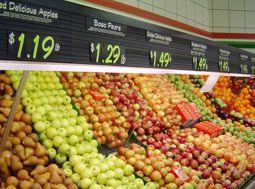
Food and beverage companies need to be prepared for more frugality from US consumers in the next five years, according to a new Rabobank America podcast.
While consumer confidence is at its highest level since November 2008, Rabobank claims consumers are not necessarily spending more, rather those who once focused on premium products now place a premium on value – and are unlikely to revert once the recession recovers.
“An economic recovery would help loosen up consumer purse strings, and improve some of the consumer confidence levels,” said Rabobank’s Food & Agribusiness Research and Advisory (FAR) Executive Director Stephen Rannekleiv. “But many of the pre-recession spending trends were somewhat unsustainable. I think consumers have changed.”
In the podcast, Mr Rannekleiv explains how the economy has altered buying habits – creating more price sensitive consumers, who are looking for less expensive alternatives, reducing spending, and increasingly using coupons.
“This increased price sensitivity of consumers comes on the heels of an unprecedented trend of trading up where you saw consumers willing to spend more for small luxuries and premium products,” said Mr Rannekleiv. “The problem comes in the investments that were made to take advantage of these trading up trends.”
While consumers were trading up, companies were able to profit from investments in acquisitions, as well as brand positioning and image. However, with consumers shifting to less expensive options, returns on those investments are now not meeting expectations, Rabobank said.
How companies respond – whether waiting out the downturn or making changes to their products and brand position to become more value oriented – depends on whether they believe the recession is cyclical or secular.
“(However) those views can be somewhat fluid as more information becomes available, as the recession drags on, and as we see these trends continue,” said Mr Rannekleiv.
For example, Rabobank said one food retailer invested in improving the consumer shopping experience and expanded their premium product mix – taking advantage of the premiumization trends in order to differentiate themselves from low-cost retailers. Because this investment had proven so successful, their initial response was to wait out the downturn. However, as the recession lingered, they have become more aggressive in their pricing in order to maintain their customer base.
“Food and beverage companies need to be prepared for more frugality from consumers,” said Rannekleiv, who estimates that frugality could be an important consumer trend for the next five years.
In addition to higher unemployment rates, much of this change can be attributed to the loss of wealth US households have experienced from the declining stock market and housing values.
As the economy turns around, consumer confidence may increase further and the level of spending may also increase. However, Mr Rannekleiv suggests spending may not return to previous levels.



